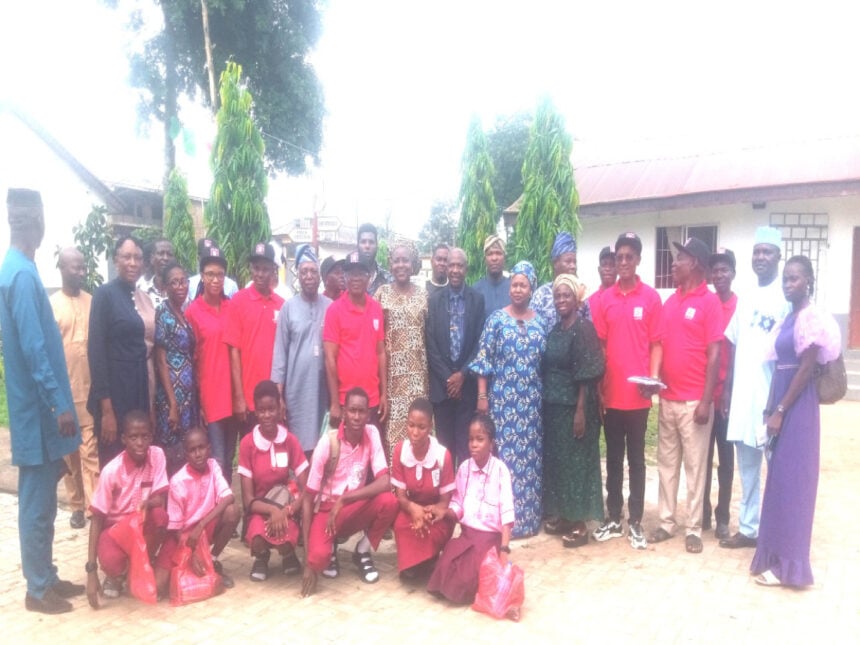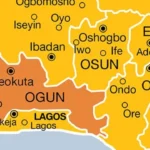EVERY April 26 is World Intellectual Property Day, which the United Nations Educational, Scientific and Cultural Organisation (UNESCO) uses to celebrate intellectual creativity across the world.
In Nigeria, members of the Association of Independent Publishers, Nigeria (AIPN), as always, gathered at the Alliance Francaise, Ibadan, to celebrate the day.
There was, however, concern in the air, especially on the proposal of the Minister of Education, Dr Tunji Alausa, to change the country education system from 6-3-3-4 to 12-4, as being practised in the United States of America.
The publishers are all aware that this proposal, although since suspended until October, if implemented, would disrupt education system and also affect their businesses in the area of production of books.
The theme for the event, “6-3-3-4 or 12-4 Educational System: Which Way Nigeria?, reveals the utmost importance the publishers have given to this development in the education system.
In his opening remarks, the national chairman of AIPN, Chief Akeem Ajibade, said it has now become the norm for the association to celebrate UNESCO’s Intellectual Property Day due to the role members play in the generation of intellectual property in the country.
“However, unlike in previous years, this year is special because of the development in the education sector, where members are majorly active; the Minister of Education, Dr Tunji Alausa, is proposing a shift from the 6-3-3-4 system to 12-4.
“This year’s event is, therefore, an opportunity for the minister to know publishers’ position on the proposal, and hopefully, by October, when stakeholders in the education sector gather to discuss, the true can be laid bare,” Chief Ajibade said.
Meanwhile, chairman on the occasion and a publisher of note, Chief Sunday Obiyinka, commended AIPN for championing the debate on the country’s education system.
Chief Obiyinka said the problem with the country’s educational system was not the policies being put in place, but in the implementation.
“If we change from 6-3-3-4 to 12-4, or from 12-4 to another system, the truth is that the same challenges that had been facing the previous systems would also face the new system.
“In my opinion, I think government just needs to look at the challenges that made the previous systems fail and work towards tackling them,” Chief Obiyinka, the CEO of Extension Publishers, said.
In the lecture, Dr Tunde Odekunle, an education expert who just retired from the Oyo State civil service, went through the country’s education system from the colonial era, till when the 6-3-3-4 system was passed in 1981.
“Before then, we had the 6-5-2-3 system, where primary education took six years, secondary education took five years, and there was two years for college education and university education took another three years.
“However, with the adoption of 6-3-3-4, primary education took six years, there was another three years for junior secondary education and three years again for senior secondary education, and then a minimum of four years for university education.
“One of the benefits of the 6-3-3-4 system was that it provided quick exit points, like in junior secondary school 3, for those who would like to go and learn any trade.
“We must, however, not forget that in 2006, the system changed to 9, 3, 4; this was a disguised version of the 6-3-3-4.
“It must also be noted that while we felt the 6-3-3-4 system failed in Nigeria, it is a success in China, which has helped them achieve the manpower for their technological needs.”
Dr Odekunle, while highlighting some of the reasons the system failed in Nigeria, said: “we had inadequate manpower, epileptic power supply, inadequate funding,, improper training and retraining of teachers, among others.
“Therefore, no matter the new system the Ministry of Education wants to introduce, it would also end up like the previous systems if the challenges mentioned earlier are still there.
“In my own opinion, therefore, the government should just focus on tackling the challenges that made the previous systems fail, instead of coming up with another one that would also face the earlier challenges.”
At the event were students from various secondary schools in Ibadan, representatives of the Oyo State commissioner for education and chairman of the State Universal Basic Education Board (SUBEB), Director of the National Copyright Commission (NCC) in Oyo State, booksellers, among others.
ALSO READ TOP STORIES FROM NIGERIAN TRIBUNE
WATCH TOP VIDEOS FROM NIGERIAN TRIBUNE TV
- Relationship Hangout: Public vs Private Proposals – Which Truly Wins in Love?
- “No” Is a Complete Sentence: Why You Should Stop Feeling Guilty
- Relationship Hangout: Friendship Talk 2025 – How to Be a Good Friend & Big Questions on Friendship
- Police Overpower Armed Robbers in Ibadan After Fierce Struggle






